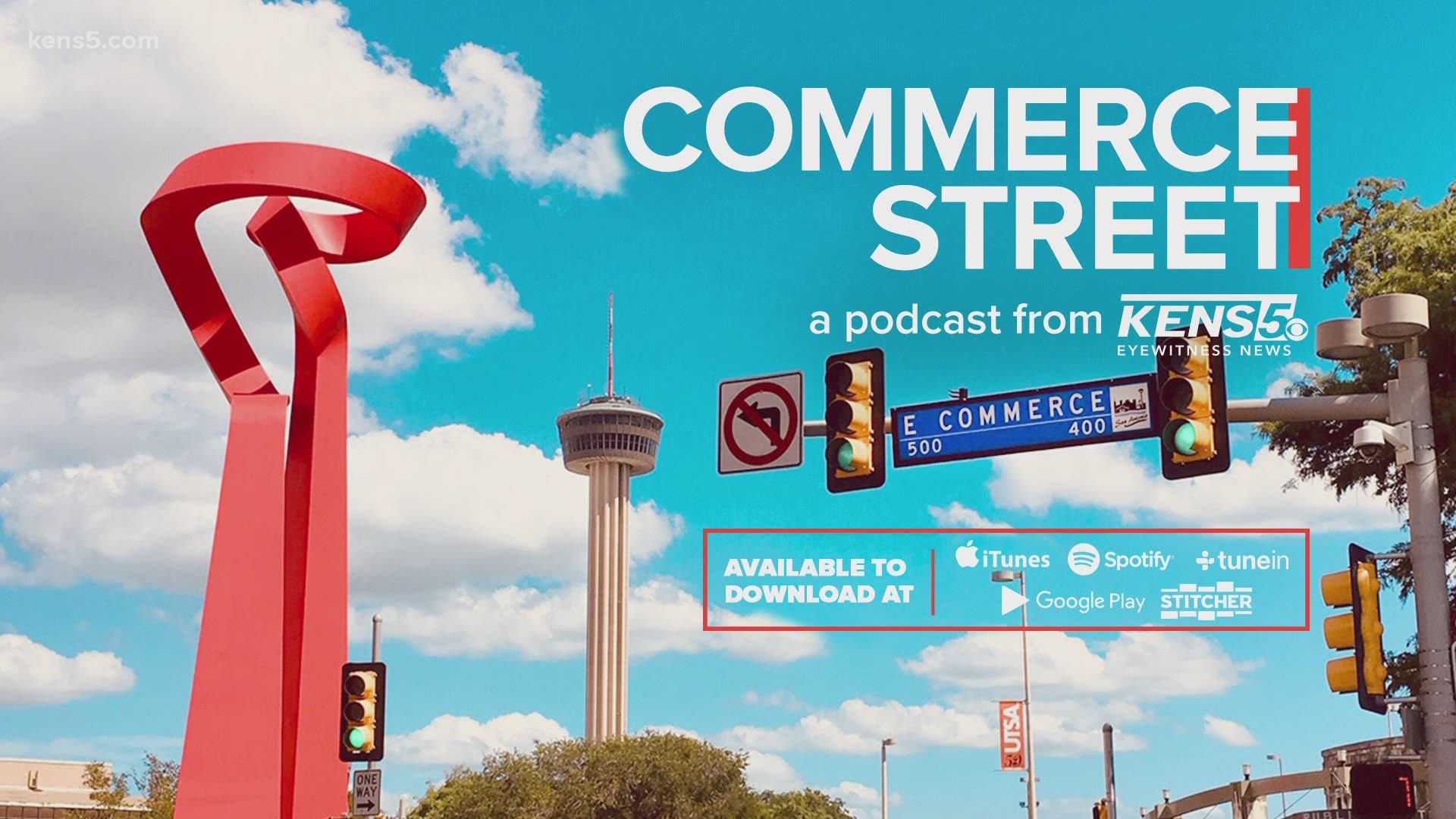How a local group is helping downtown businesses survive | COMMERCE STREET
Centro San Antonio hopes sharing resources and sparking creativity will help small businesses weather a major drop in customers.
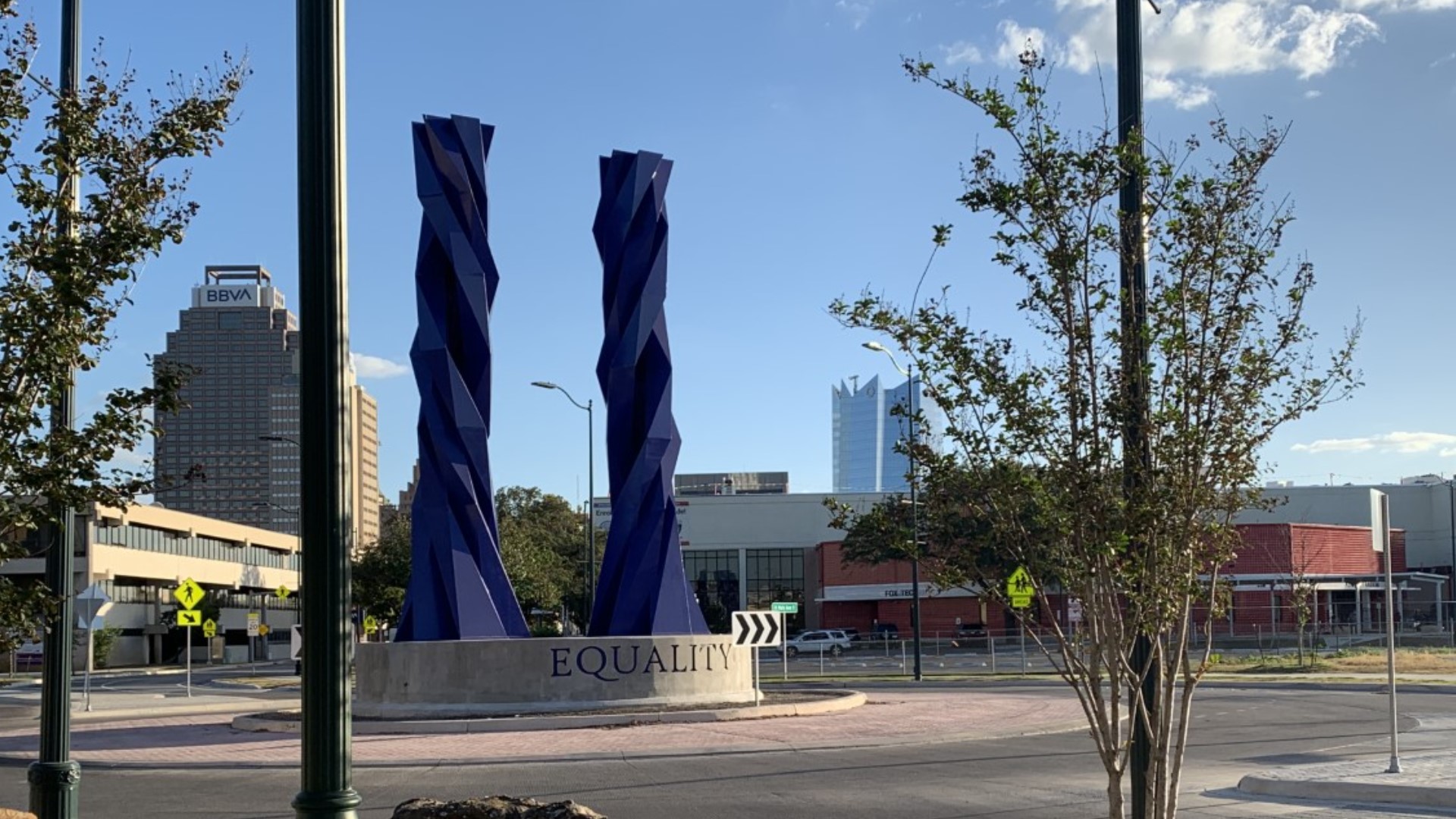
Rich in history, recognizable by its landmarks and distinguished by its diverse range of businesses, art and attractions, San Antonio's downtown typically draws visitors from across the nation. But without the stable stream of tourists, convention-goers and government workers that typically guarantee a strong customer base, downtown businesses are facing unique challenges.
That's why Centro San Antonio launched its Main Street Business Program - an initiative aimed at equipping small businesses with what they need to survive and thrive through the pandemic. That mission also attracted the City of San Antonio to select Centro as a partner in its plans for economic recovery.
In this episode of Commerce Street, a business podcast from KENS 5, we spoke with one of the program's architects and one of the on-the-street "Navigators" about what they're doing and why.
Listen to the full episode below:
We also heard from three local businesses about the challenges they've faced, the ways they've innovated and the help they've received or programs they've partnered on with Centro SA.
Main Street Subtitle here
Sylvia Lopez Gaona is the Chief Economic Development Officer for Centro San Antonio, and one of the program's organizers.
What is the Main Street program, and where did it come from?
The Main Street program was created by our CEO Matt Brown in the spring when the effects of COVID began to become evident downtown. He brought me on to create the Main Street program, which started with emergency outreach efforts and developed from there to really reach out to provide support and assistance to downtown businesses. We saw that all of the businesses were struggling. Many were closing and we saw that something needed to be done

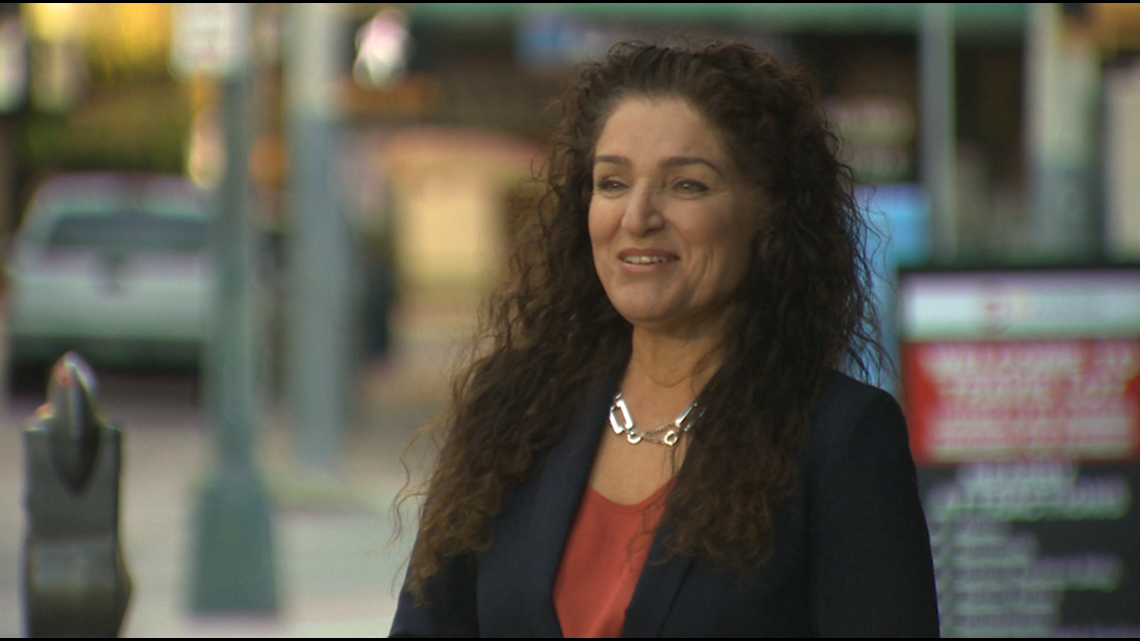
What has the process involved so far?
Initially we started out with triaging what we needed to do to help businesses. We had some unrest downtown so we were there trying to be responsive to businesses that had windows damaged so we created a program to assist them financially with that. We have also reached out to them to see what other needs they might have at this time, we reach out to let them know about every grant program we hear about nationally and through the city and county to make sure they’re applying and to offer assistance.
And you've been involved in efforts with the city, too, right?
As we started the main street program, the city started their Recovery and Resiliency plan. And they reached out to us to assist them with that, and so we've been working alongside them with outreach efforts as well.
The Navigators Subtitle here
One of the ways the program works is by sending out what Centro calls "Navigators." They who work one-on-one with businesses to identify what types of help they might need, and which programs will be a good fit. Centro's contract with the city allowed it to hire more Navigators to assist in a wider area.
Linda Stone is a Senior Navigator and works with individual businesses, deploying various methods of communication to reach as many businesses as she can.
"We’re using phone, in person and email, and I’m thinking about reaching out on Instagram, too, because we have to reach them however we can," Stone says. "Sometimes we bring PPE, personal protective equipment donated by the city.
How do you find businesses, and what is the process with each one like?
We’re using phone, in-person and email, and I’m thinking about reaching out on Instagram too because we have to reach them however we can. Whatever’s most convenient for them. So sometimes we bring PPE, personal protective equipment donated by the city; we’re part of a larger group with the East, South and West sides, under our contract with the city.
We gather data about who they are, what their business is and what kind of challenges they’re suffering from due to COVID. Once we have that information we can direct them to resources that are available. There’s a lot of resources out there. UTSA has a business accelerator, there’s LiftFund, there’s Launch SA, there’s a womens' business center. So we figure out what’s most appropriate for them and connect them. Anyone within the Public Improvement District, we can help with outdoor dining, we can help them with permits for that to have a presence and be safer. We can contract with them to do landscaping. And we create spotlight stories on them which we share on our website.

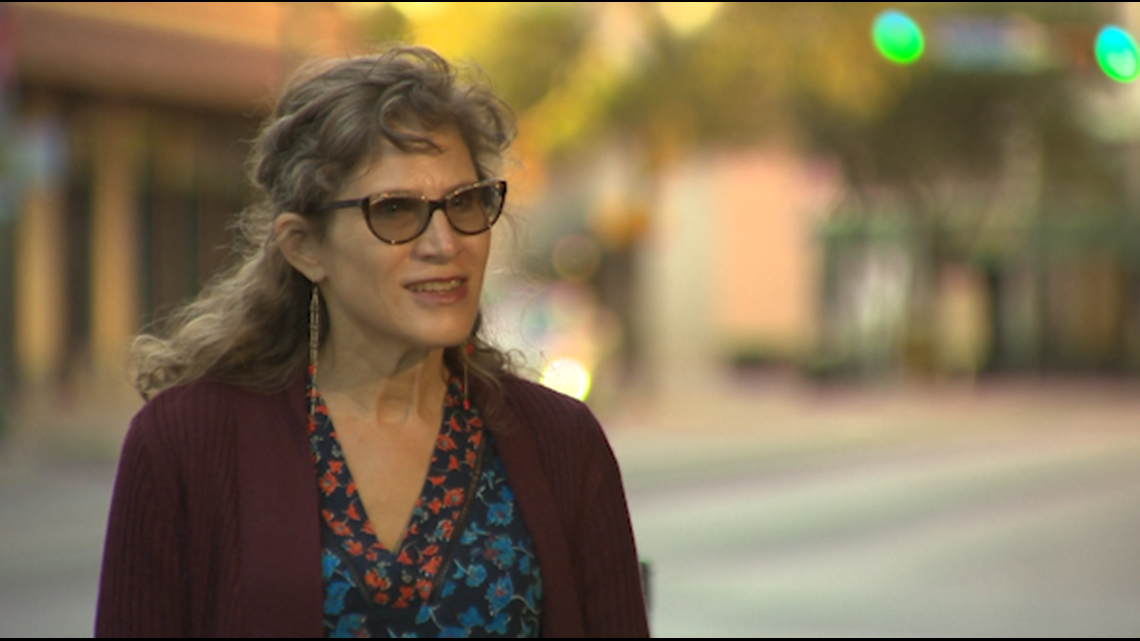
What are the dominant challenges they say they're facing?
That’s very dependent on the type of industry and what’s available in the moment. There’s been a whole series of grant opportunities that have come out, and that’s what we do. We let them know, because they may be so busy they don’t realize they're there. There’s sometimes a short window to apply but whenever we hear we send it out to the businesses that qualify. There’s also ways to market themselves differently, go online and sell products online, to-go orders- I don’t know if it solves the problem, but it helps them think of their business in a new way.
The businesses that are really struggling the most… are the hotels, the restaurants, the retails, advertising and marketing was one of the first things to go. Downtown doesn’t have tourists, conventions or workers- so it’s, how do we overcome that?
What most impresses you about these businesses?
I think the resilience. There’s that entrepreneurial spirit. And I have a business so I get that. It’s like, we’re gonna figure this out, we’re gonna make this work. I think that’s 90% of them. They really want to.
I do find that more recently, because we’ve been calling for several months now, some businesses are more willing to talk because they ran out of PPP funds. There’s not as many grants available right now so they’re more receptive, and I think that’s good, to be open to more ways you can rethink your business.
I was just looking at a report the Hispanic Chamber did some years ago and it said businesses with less than 100 employees made up 97% of the economy in greater san Antonio, so its huge. And that’s another thing- a lot of the businesses downtown, they’re not only worried about themselves but all their employees. I talked to a lot of businesses still paying employees- one was closed and they’re still paying their employees- cause they didn’t want to let them down. It’s a huge responsibility and there’s just a lot of caring.
We’re made up of small businesses. That’s the fabric of our economy, and the color, and I feel that we have to find a way to get people down here to keep downtown going because the downtown is the lifeblood of this city, such a variety of businesses and people.
Lula's Mexican Cafe Subtitle here
Obdulia Gabriel- also known as "Lula"- owns Lula's Mexican Cafe in the Milam building at 115 East Travis with her husband, who she met while working at Mi Tierra more than 20 years ago. They first opened a restaurant in 1999, and moved to their new location where they developed a steady stream of regulars, as well as sales from tourists and convention-goers.
Tell me about Lula's.
It’s me, my husband and my two boys. We always worked in restaurants. My husband’s working in a restaurant right now. We met working at Mi Tierra, and our friend owned three restaurants and he asked, do you want to buy one? So that’s how Lula’s came about, It is a family-oriented restaurant, and we have lots of specials. Thursdays we have our pollo poblano and Mondays, our chipotle enchiladas- those are famous, we’re really busy.

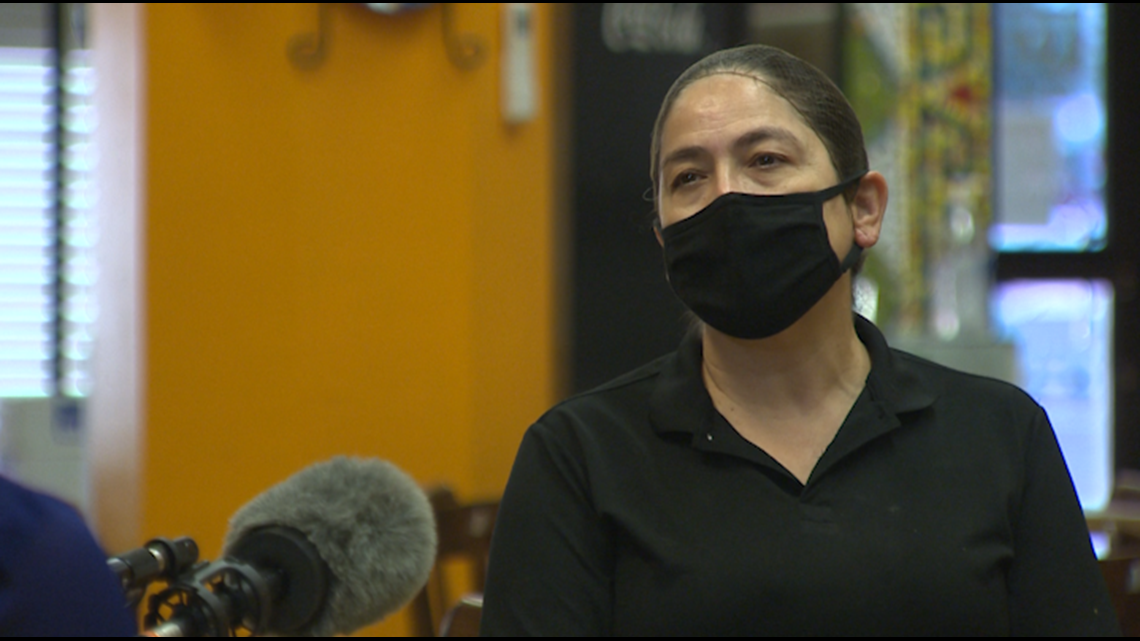
What has the impact of coronavirus been like?
Right now because of COVID it's Monday through Friday 8-2. As you can see, It’s slow, very slow- it’s hard. Right now I’m in the kitchen working because I can’t afford to pay an employee working right now. It’s hard, but hopefully we’ll make it.
I really don’t want to be selfish. It’s up to [customers]- they have to look after themselves. It’s hard, I’m personally very, very, very protective. I’m really afraid for my children, cause they’re in the front. I’m in the back. Other than that I hope [customers] get back soon because it’s been hard but they have to think of their family also.
How has Centro helped you with this?
Centro, they’ve been really kind, they’ve been helping me out. They emailed me applications for grants. I applied already, so hopefully we’ll get a response soon. They also sanitize outside, like we sanitize in here. We also use disposable wipes, no silverware- only packets. We have cups to go, and take lots of precautions.
Cadeaux Subtitle here
Doris Pitts and Arthur Perez co-own CADEAUX, a lifestyle gift shop at 405 North Saint Mary's. During the pandemic, they've expanded services aimed at deepening relationships with customers. They say Centro's overall impact downtown has also helped.
Tell me about CADEAUX, and how the pandemic has impacted what you do.
We’re a lifestyle store. We opened up in 2017. We felt there was a need for a gift shop downtown for people that work and live here. We gift wrap for free, we do curbside service and we offer free shipping and free delivery.
Like everybody else, we kind of upped our online presence in terms of e-commerce. That was already in the process but once COVID hit we had to come up with ways to put us ahead of the game because of lack of residents getting out because of the pandemic and city’s shutdown.
People were working from home, and we didn’t have that everyday foot traffic as well as tourism and conventions. Those were put to a halt and will be for as long as we know. So we upped our online game, social media presence elevated to another level- and we went old school, using retail tactics of calling customers, letting them know what’s new through text messages, phone calls, and sending something in the mail, it’s a little different.

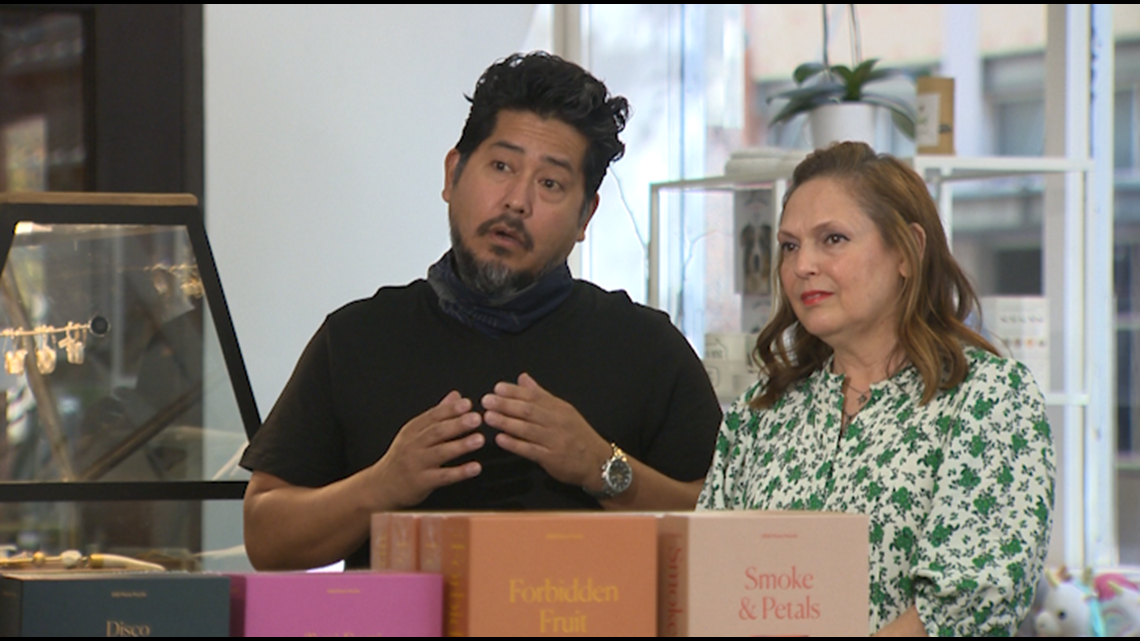
How has Centro played into all of that?
We kind of had to change our ways to stay afloat, like everybody else. Centro has been a really, really great supporter of that and also the city offering face masks, sanitizer and acrylic panels to distance from customers. We’re positive that things will get back to normal if not get even better.
Centro has been putting a lot of hand sanitizers everywhere, spraying the doors, all the businesses, so they’ve been doing well on that; just making everybody feel safe and that’s one of the main things. Getting people to come back downtown. It's growing and vibrant and we want that to continue.
Helping people feel safe and comfortable, and so it’s- we’re grateful for them. They reach out regularly, ambassadors say hi in the morning, spray the windows, hi how are you, work with tourists, give them directions. Without them, I don’t know how we’d be able to get through all this.
What do you want people to know if they haven't been downtown for awhile?
Come downtown and visit the new Hopscotch interactive lighting gallery down the street. That’s created a dynamic energy downtown on the weekends. Come downtown, have lunch next door at Blanco Café, have a coffee at Sip, then come over here and we’ll help you.
Garcia Art Glass Subtitle here
Garcia Art Glass on South Alamo has also introduced new services and products in light of the pandemic, and worked with Centro on its Small Minority Women Owned Business Saturday event. Owner, founder and creative head Gini Garcia says their driving mission - creativity - has proved essential over the past year.
Tell me about Garcia Art Glass, and about how the pandemic has impacted you.
What you can find here at Garcia Art Glass is just a huge variety of hand-blown art objects. Everyone is different. You can find things in every price range, everything slightly below $100 up into the thousands of dollars. Our mission here at Garcia Art Glass is to really tell stories through art. I consider myself a master storyteller- so what we like to do is innovate. We try to bring creativity and innovation all together under one roof, where we can solve problems creatively.
Not only in the way of new products- certainly the pandemic has really brought out new thinking. We’ve realized this new way of life really requires a new way of thinking, as well. So we’ve come up with certain things, for example this hand sanitizer bottle, we’re creating these right now and taking orders on them. We’re enjoying them as corporate gifts, allowing companies or movers and shakers in San Antonio to order their own bottle in their name or logo colors.
We’re also excited about social media. We’re not having a ton of people in the gallery right now, but we are open, and we’re open by appointment as well. But we’ve discovered new things, how doctors call telemedicine, we’re doing tele-art meetings, through FaceTime or Zoom or Google Groups, you can show me around your home with your camera, like we’re doing a house visit, and I can really create and craft a story that works around your other art or collection, linens, family story and do something remotely here in our hot shop, our glass blowing studio. In the early part of COVID we were doing a whole lot of that, and now some people are coming in- but that’s kind of a new innovation for us.

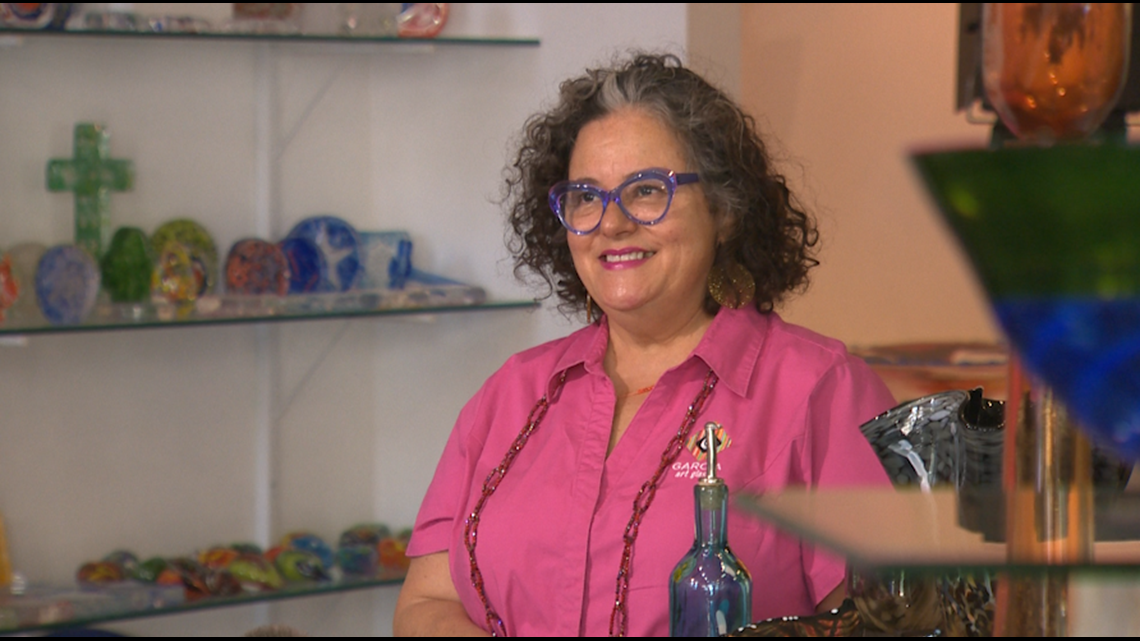
What have you been working on with Centro?
We’ve been so excited to partner up with Centro on this program for Small Business Saturday. We had done some things with Small Business Saturday in the past, but this one is really different. It’s really exciting to team up with Centro and not only because we’re in the middle of downtown, where you can come, there’s a synergy in Southtown.
Even with our little Saturday market there’s a big sign in the front that says no mask, no market. We spaced out the vendors and here in our own studio we do practice social distancing. If we’re letting people in we let a certain number of people come in, we take temperatures, we make sure its safe- and while the glass blowing is not open to the public per-se we have windows they can look through. There's a big opening facing Presa street so they can watch the glass blowing live.
What have we learned from this year?
We’re all having to adjust, but we’re really finding the pearls in COVID, so we’re feeling really good. Innovating and trying to be nimble, change the story, marketing, look for new avenues and ways to promote our own company- we’ve been around for 23 years already and…through creativity it’s not only the beauty and creations we make that adorn the gallery, and the walls- but it’s also a certain innovation about how to run a business, change up the story and market ourselves in appropriate ways. For the seasons, Christmas, we have Christmas ornaments ready to go, glass pumpkins for Thanksgiving, we’re also changing it up seasonally.
Do it safely- but the small business is really the soul of a community. Without small business just imagine the ways in which we are able to buy or make contact with another person. The isolation thing, it’s really- subconsciously, you know there’s an increase of mental illness and certain things- I think it’s important for people to feel comfortable going out- be vigilant and take care of our elderly but I think it’s encouraging to come out, look at the sun and walk around the neighborhood. During this pandemic, we need to reach out to our neighbors.
Get Involved Subtitle here
Meanwhile, Centro staff members continue the hard work of preserving the character and energy of downtown San Antonio, an internationally recognized destination.
"Downtown is beautiful and fun and there’s so many places to explore you never saw before," Lopez Gaona said. "It gets you out of your work from home environment, its not crowded with tourists right now, it’s the best time to come downtown. There’s lots of places to shop and go out to eat, and you’ll find a spot you’ve never seen before."
Her colleague, Linda Stone, says preserving small businesses in the downtown area is vital to its survival.
"We’re made up of small businesses, that’s the fabric of our economy, and the color and I feel that we have to find a way to get people down here to keep downtown going because the downtown is the lifeblood of this city, such a variety of businesses and people," Stone said.
You can learn more about the Centro San Antonio Main Street program on their website. They also say the best way you can help is by getting online or heading downtown and safely patronizing these businesses.


